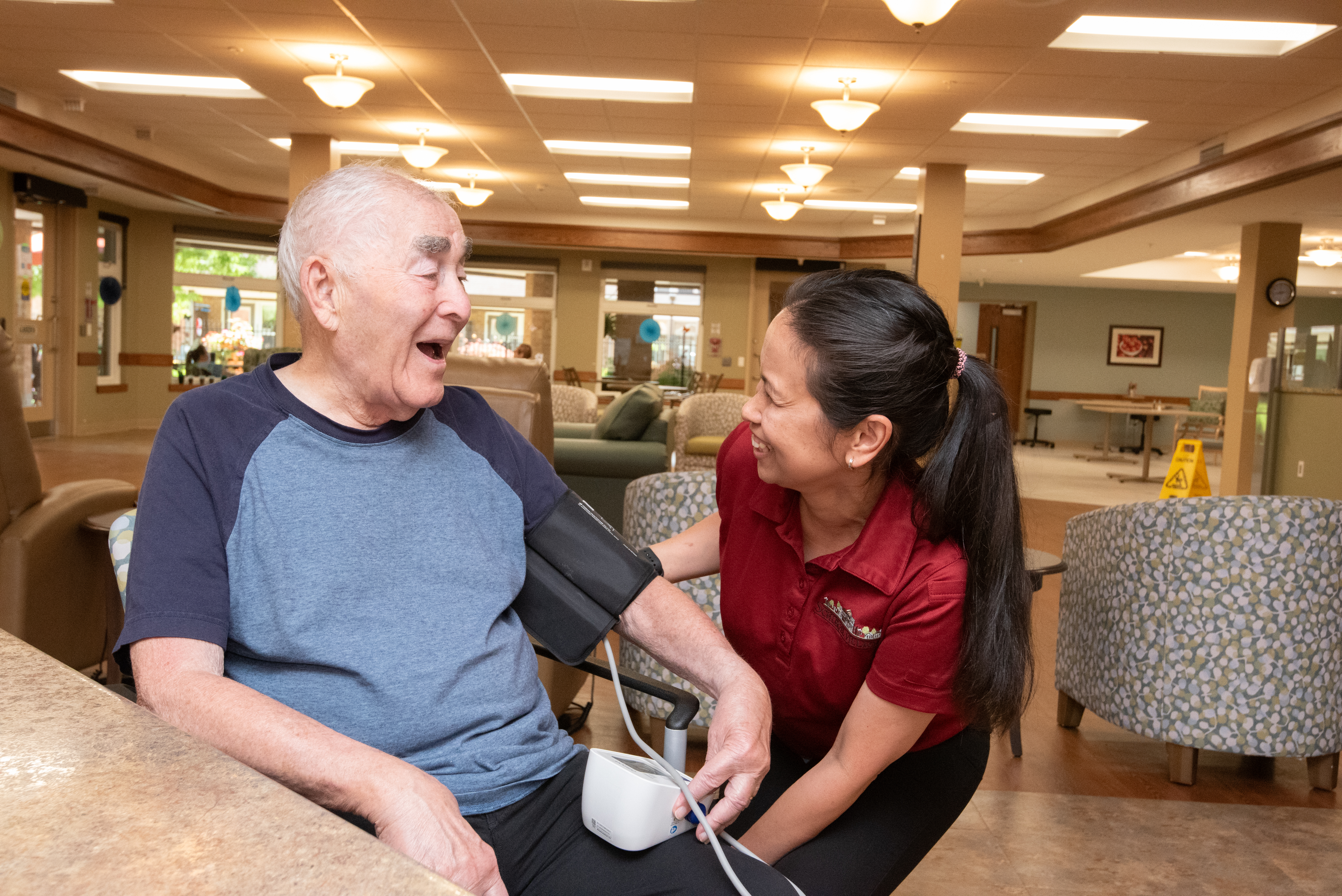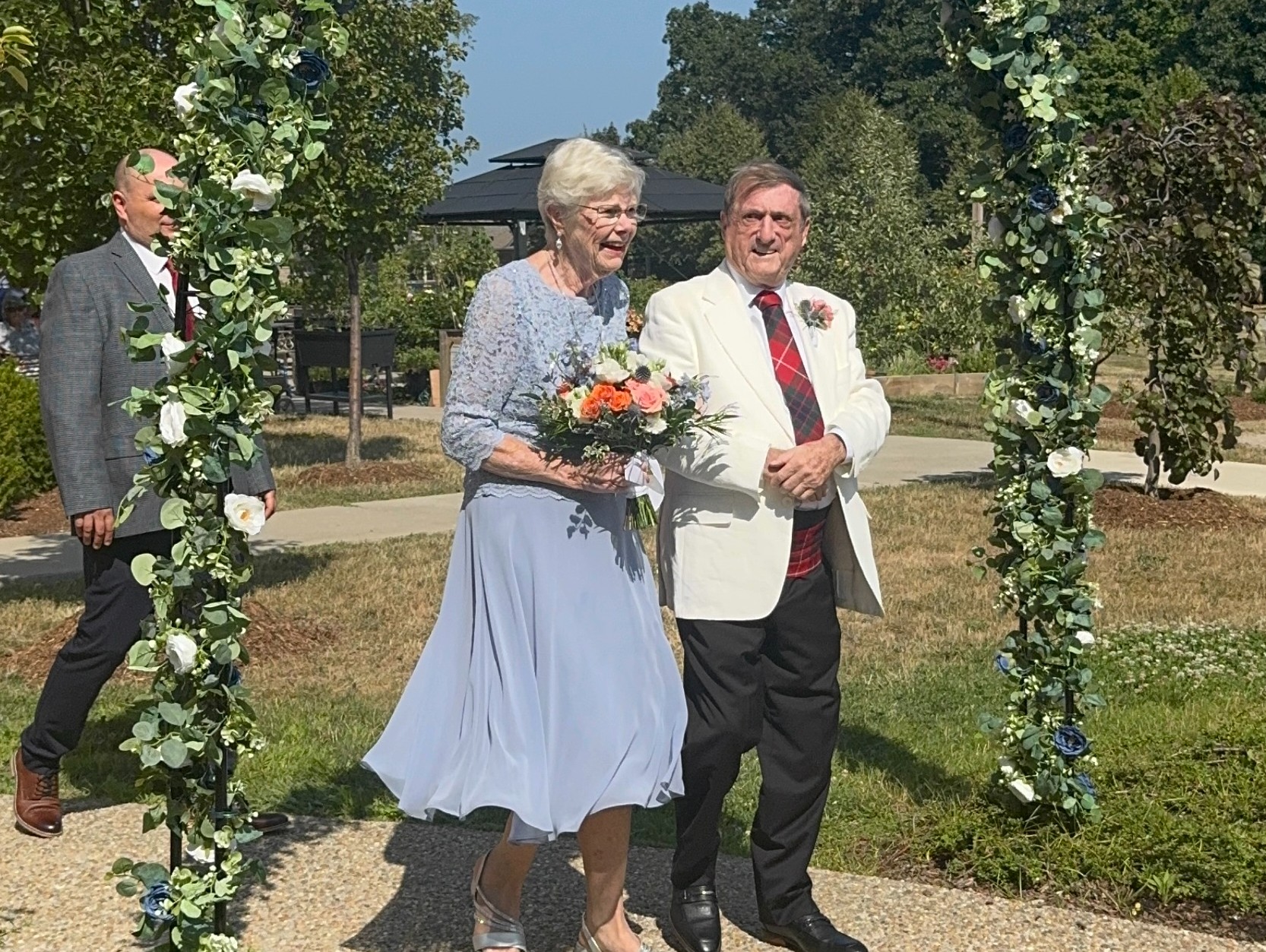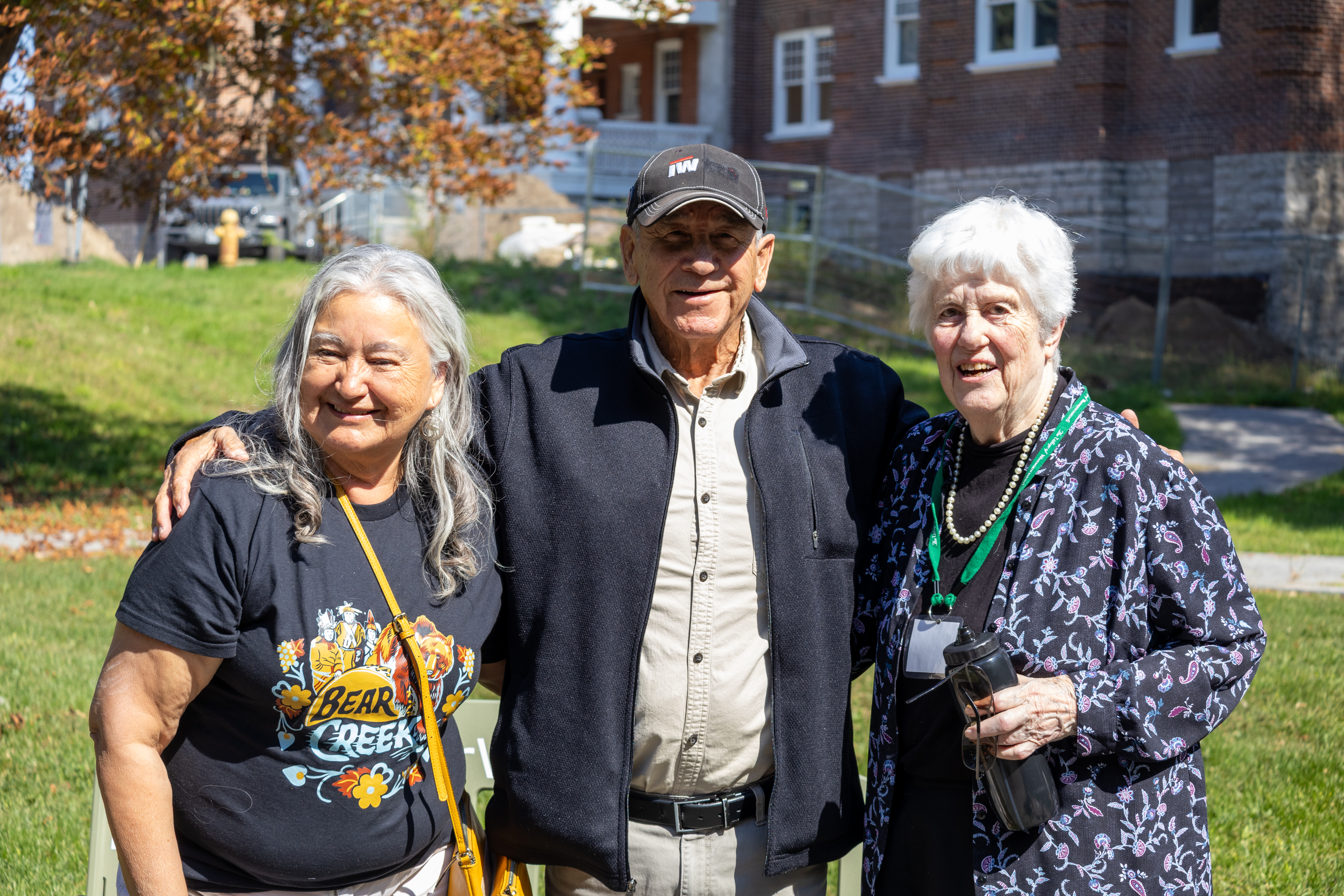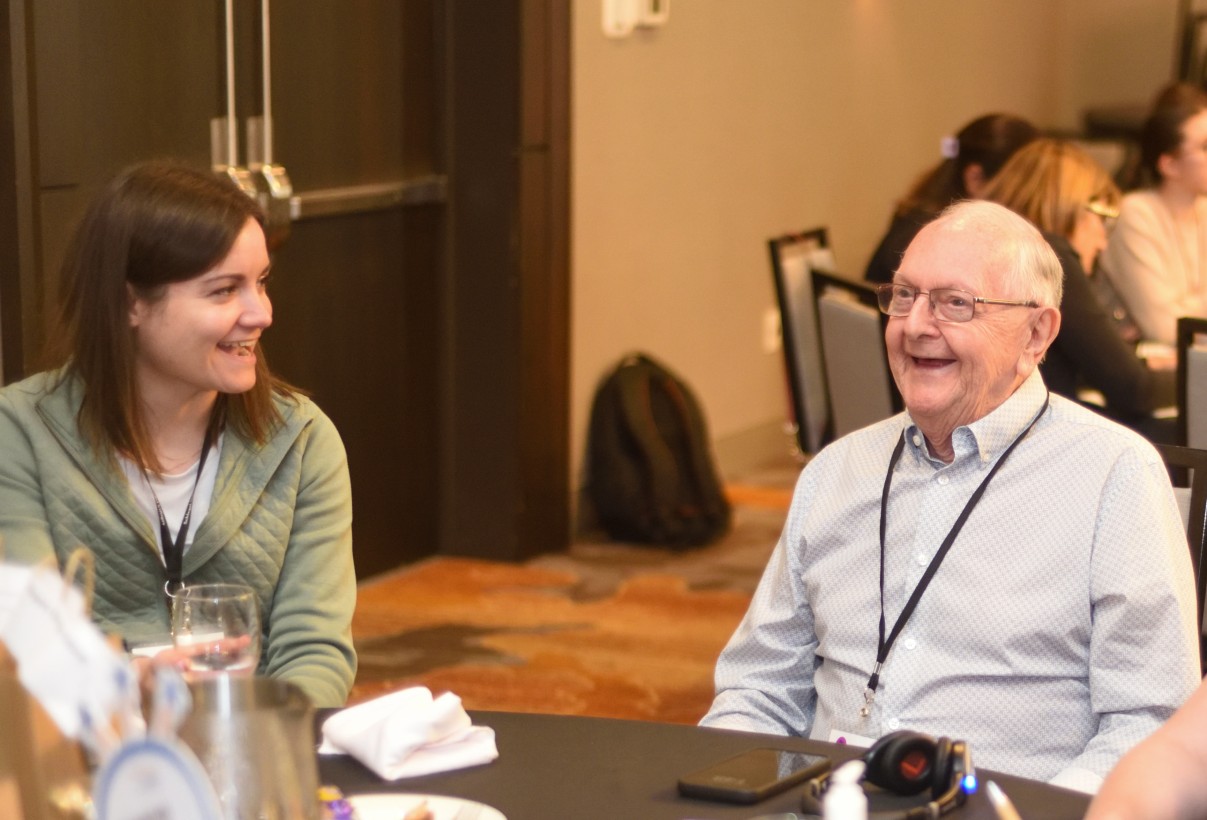Residents supporting each other embodies the Schlegel philosophy, says Renee Ganley
By Kristian Partington
When Renee Ganley came across information about the LIVING in My Today dementia education program during a recent Family Expo held at her home at The Village of Aspen Lake, she suggested it might be nice if residents were able to participate in such an opportunity.

Renee Ganley with Julie D'Alessandro at The Village of Aspen Lake.
“You can,” came the quick reply from Tanya Hager and Julie D’Alessandro, the team members running the display, and within a couple of weeks, Renee had joined a group of team members to begin the overview. In June, she became the first resident from the village to complete the program and now, she’s a strong advocate for the concepts it teaches.
Essentially, LIVING in My Today helps guide participants to a better understanding of the realities dementia can present. The fact is: dementia affects no two people the same, and this program helps people see the individual behind the diagnosis and presents the opportunity to accept that person as they are in each moment of every day.
Renee says it’s wonderful to see so many team members taking advantage of the opportunity to enhance their understanding and she hopes more residents will do the same.
“As much as the team is involved with residents at any of the villages, I find that residents see their fellow residents from hour to hour and we can see changes quicker,” Renee says. As neighbourhoods begin to integrate those living with dementia and those who are not, it makes sense for others to gain a true sense of what dementia is as opposed to the stereotypical view that tends to come to mind for many people.
“Everybody has a preconceived idea of what dementia is, but there’s so much more to it and if you’re not going through it yourself, you don’t know what to expect from day-to-day,” Renee says. The idea of residents supporting their neighbours is the whole philosophy behind Schlegel Villages, she adds, and she’s proud to be an advocate for the LIMT philosophy.
Julie, who helps facilitate the LIMT training and is the director of Behavioural Outreach Supports through Behavioural Supports Ontario, agrees that more resident involvement and understanding will only have a positive impact.
“I’m hoping that now, going forward with Renee having completed the program and being such a strong voice here in the village, that she might start some more interest, because resident to resident would be definitely much more powerful than only team member to resident,” Julie says.
The reality is that in an aging population, the effects of dementia will be faced by more and more people all the time, Renee points out, and LIMT offers welcomed, new perspective.
“I fully support LIVING in My Today,” she says. “It’s probably one of the best things our teams, family members and residents can do, because it’s going to become more and more of an issue as time goes by.”
- Previous
- View All News
- Next
































































































































































































































































































































































































































































































































































